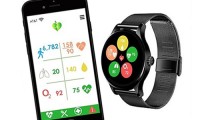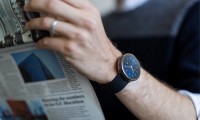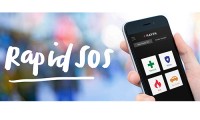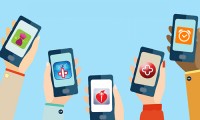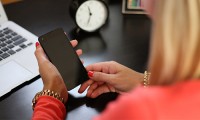-
LifePlus announces glucose monitoring wearable
- Source: Ddu
- 981
- May 18, 2018
-
Mayo Clinic’s new mHealth app to detect Epilepsy
- Source: drugdu
- 845
- May 9, 2018
-
Garmin Health partnering with the University of Kansas Medical Center on Innovative Digital Health Research
- Source: mHealth Intelligence
- 696
- May 3, 2018
-
iBeat’s $5.5M funding paves way for summer launch of cardio wearable
- Source: MobiHealthNews
- 677
- May 3, 2018
-
Researchers’ wearable measures force athletes put on tendons
- Source: MobiHealthNews
- 2,281
- April 30, 2018
-
UCSD launching pilot trial of glucose-sensing ‘tattoo’
- Source: MobiHealthNews
- 603
- April 25, 2018
-
RapidSOS collects $16M to deliver stronger data to emergency response teams
- Source: MobiHealthNews
- 465
- April 23, 2018
-
Which features of healthcare apps do patients desire most?
- Source: MedCityNews
- 756
- April 20, 2018
-
App accurately tracks Parkinson’s disease symptoms
- Source: MobiHealthNews
- 689
- April 11, 2018
your submission has already been received.
OK
Subscribe
Please enter a valid Email address!
Submit
The most relevant industry news & insight will be sent to you every two weeks.

